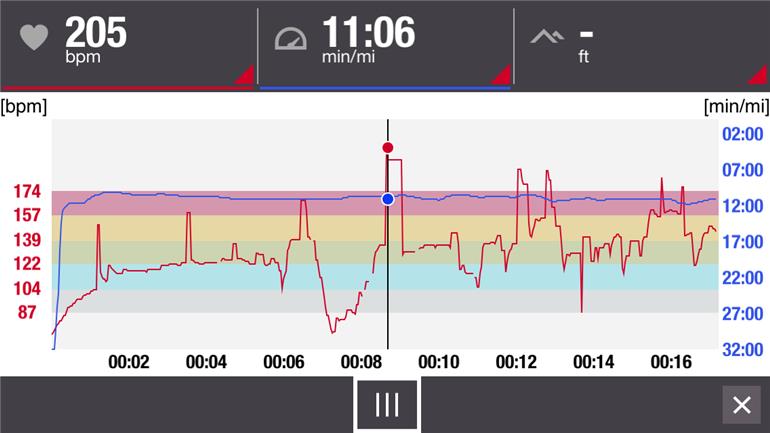I was cardioverted successfully approx 18 months ago and no longer on any medication.
After a period, once i felt confident, i began to get back into my running. I have always used a HRM as a training tool and thought it was also the time for me to upgrade to a more up-to-date model.
As i have posted before i was seeing some strange readings on my HRM along with not feeling "quite right" ended up asking my doctor to refer me to a specialist at QE Hospital, Birmingham.
He did a static ECG and said i should be ok to run, but agreed to get me in for a treadmill test. He thought the feelings i was getting were just from a lack of fitness.
Last Friday i went for the treadmill test and the operator said he wanted to see me stay on it until i could go no more. He said he wanted me reach Max HR.
I did stay on the test until approx 98% of Max HR ( i think anyway) . I was too busy trying to catch my breath to get the detail.
They said that all looked ok. My heart rhythm stayed ok apart from 6 ectopic beats that they spotted. This made me feel a lot more confident about the stresses during exercise.
Last night i went out for my first run since April (when i asked to be referred). I wore the HRM but purposely avoided looking at the readings.
I looked at them this morning and once again the HR is all over the place. I will try my older version HRM but cannot get the same level of detail ie no graphs.
Does anyone else have any experience with their HRM readings particularly the Polar M400?

